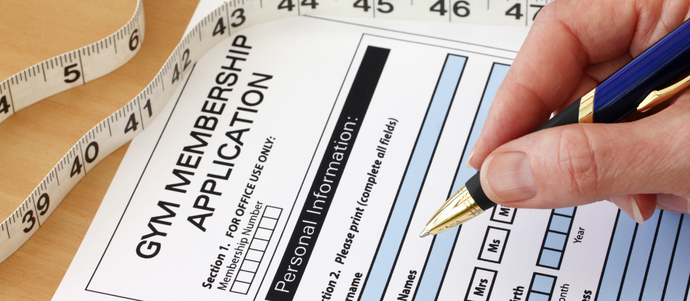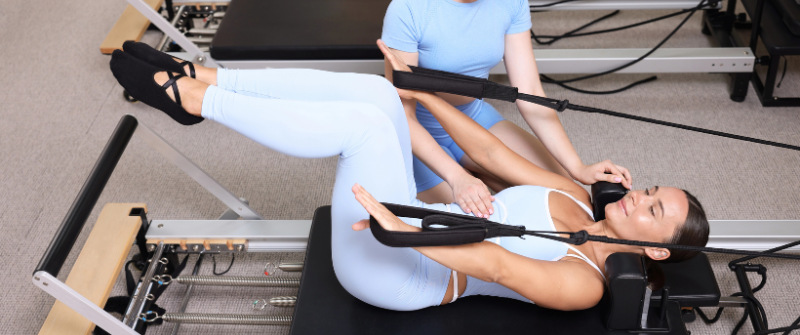
- by NEXO Team
- November 22, 2022
It’s common knowledge that business owners can claim tax deductions to offset their operational expenses and tax liability. Despite there being some common credits available for fitness professionals, did you know that there are CrossFit tax deductions for affiliates, trainers, and box operators? As a fitness professional, one of the best things you can do to make your business more lucrative is to lower your tax liabilities with deductible business expenses. The key is taking advantage of every expense you can find to lower your business’s overall tax liability.
Check out the following overlooked CrossFit gym tax deductions to make your journey as a fitness professional more rewarding.
Common CrossFit Gym Tax Deductions
Here are the ten most common tax deductions CrossFit gyms can claim:1. Gear And Equipment
As a fitness professional, any training or workout equipment or gear you finance or purchase exclusively for you, your clients, or your fitness business qualifies as a business expense. Whether you’ve rented equipment for a few months out of the year or purchased new weights, treadmills, and lift bars to replace broken, worn, or outdated equipment, keep the receipts.
The same goes for if you have water stations, sound systems, or new lift apparatuses. Section 179 of the IRS tax code allows business owners to deduct a large portion of their equipment and gear, new and used as qualified real property, regardless of purchase or finance amount, to reduce their taxable income.
2. Music and Exercise Videos
Music is a necessity, and so are videos and recorded training sessions. It should be no surprise that music, exercise, and training videos qualify as CrossFit gym tax deductions. This also includes streaming services used solely for business purposes. When it comes to claiming these credits, you’ll need to prove that these items were solely used to prep and train clients during your gym’s operational hours. Keep a copy of the receipts so you’ll have no problems should you get audited.
3. Home Office Expenses
Today’s fitness professionals have greater flexibility and can manage their gym business from anywhere, including their homes. It doesn't matter if you have a small room or at-home office that you use for administrative purposes or train clients in the basement or garage; any dedicated space inside your residence or on your property could qualify for the home office tax deduction.
The home office deduction is applicable if the space is used regularly for business purposes and your residence is the headquarters or principal place of business. CrossFit gym tax deductions for home office expenses include utilities, internet, phone, and rent or mortgage interest. You’ll need to choose either the regular or simplified deduction method to claim the home office deduction.
4. Entertainment and Meals
Networking, marketing, client outreach, and trainer/affiliate development opportunities don't just take place at the gym. Many of these events take place at entertainment and dining establishments. Fitness professionals can deduct up to 50 percent of entertainment and meal expenses if they are for business purposes. Because this is one tax deduction that tends to get scrutinized more than most by the IRS, it’s a good idea to keep all receipts and notes on the dates, parties present, and the business matters covered.
5. Professional Services
It’s common for fitness professionals to utilize professional services from third parties to streamline their operations. Any professional or professional service you hire that is directly related to your business and necessary for its operations can qualify as a CrossFit gym tax deduction.
For example, NEXO offers NEXOSync, a concierge service for fitness professionals that includes payroll, workers’ compensation, employer taxes, 401K, and health benefits. Fitness professionals can deduct the cost of NEXOSync from their taxes because these services are vital and directly related to various operational areas.
6. Education
Certifications, continuing education, and enrichment classes, programs, seminars, etc. that you take to upgrade your professional skills, knowledge, or credentials for your CrossFit business or gym qualify as tax write-offs. The main caveat is that the education deduction is only valid for your current career path, not a future or anticipated one. That means CrossFit professionals can recoup their certification and any other related education or skill endorsement expenses on their taxes.
7. Internet and Cell Phone
This is a no-brainer. Internet, streaming, and phone costs incurred solely for business purposes qualify as CrossFit gym tax deductions. Business professionals can deduct the entire cost at tax time. But, if these services are also used for personal reasons, the credit is reduced to a percentage.
8. Business Vehicle
Fitness professionals have the freedom of working onsite and offsite. Driving to and from client sites, training seminars, gym events, etc., can be expensive, especially when you calculate the time, fuel mileage, insurance, maintenance, repairs, and wear and tear on vehicles. Affiliates or operators who work at multiple sites can use the business vehicle tax deduction as a money-saving tactic on their taxes.
The business vehicle tax deduction doesn't just apply to business vehicles leased or owned by the gym operator or trainer. Expenses related to tolls, public transportation, and rideshare services incurred while traveling for business purposes are deductible.
9. Subscriptions and Memberships
Membership fees and subscription costs to professional organizations, publications, and services related to the fitness industry, including CrossFit and specialty niches are tax deductible.
10. Work Clothing
Fitness clothing and workout garments that are branded to advertise your gym or training services are an investment. Many novice professionals and gym operators are unaware that their gym-branded workout apparel, or uniform that is used solely for operating a gym, offering training or fitness services, and dry cleaning and laundering services qualify as a tax write-off. It’s important not to confuse items that are worn on personal time, or you could expect an audit from the IRS. Non-company branded clothing does not qualify.
What Other Costs Can Be Deducted From Taxes?
You don't have to look hard to find other tax deductions for a gym business. The IRS allows fitness professionals to deduct practically any gym or business-related expense that is vital to their organization’s operations. Gym insurance is one of them.
Gym operators, trainers, and CrossFit affiliates have special insurance considerations that require them to be selective about their coverage. General liability alone is not sufficient protection against the various risks common to the fitness industry. No other fitness insurer offers liability coverage that protects both professionals and their fitness businesses like NEXO.
As affordable and flexible as premiums are, clients benefit from claiming their insurance contributions on their tax returns. Even self-employed trainers and fitness professionals can reap the benefits as well.
Key Takeaways
Because there are numerous items that could qualify and criteria and exclusions, it's beneficial to consult with a professional CPA to evaluate your business’s tax situation to learn suitable tax deductions and strategies that work best for your situation.
Check out the NEXO blog for more information on tax deductions for gyms and fitness professionals and other resources.
Contact NEXO to speak with one of our friendly, professional fitness industry agents or to request a quote!
Categories
Fill out a short form to contact us with your questions or to receive a customized quote.
Recent Posts
-
 Injury Waivers Aren’t Enough: Insurance Gaps Jiu-Jitsu Owners Overlook
January 21, 2026
Injury Waivers Aren’t Enough: Insurance Gaps Jiu-Jitsu Owners Overlook
January 21, 2026 -
 How Gym Risk Management Can Lead to Lower Premiums Over Time
January 21, 2026
How Gym Risk Management Can Lead to Lower Premiums Over Time
January 21, 2026 -
 Why Combat Sports Gyms Pay More for Insurance and How to Control Costs
January 21, 2026
Why Combat Sports Gyms Pay More for Insurance and How to Control Costs
January 21, 2026 -
 Functional Fitness Injury Trends That Impact Insurance Underwriting
January 21, 2026
Functional Fitness Injury Trends That Impact Insurance Underwriting
January 21, 2026 -
 Why Pilates Studios Face Unexpected Liability Despite Being Low-Impact
January 21, 2026
Why Pilates Studios Face Unexpected Liability Despite Being Low-Impact
January 21, 2026

